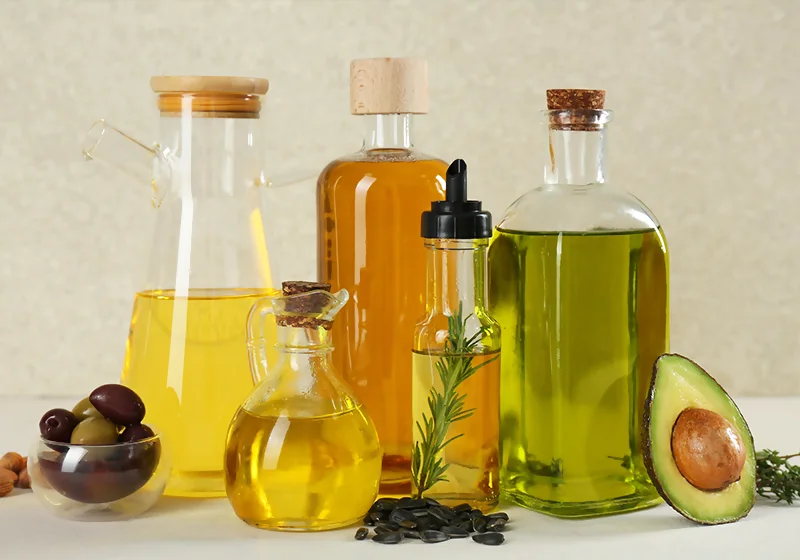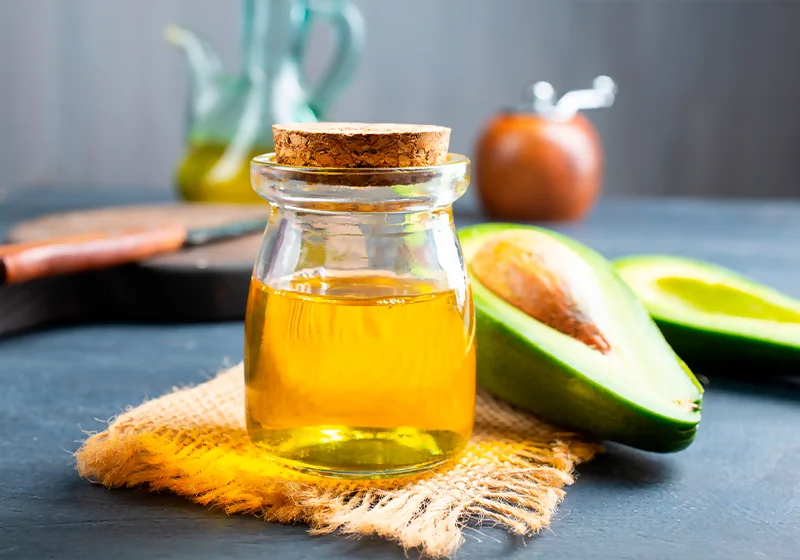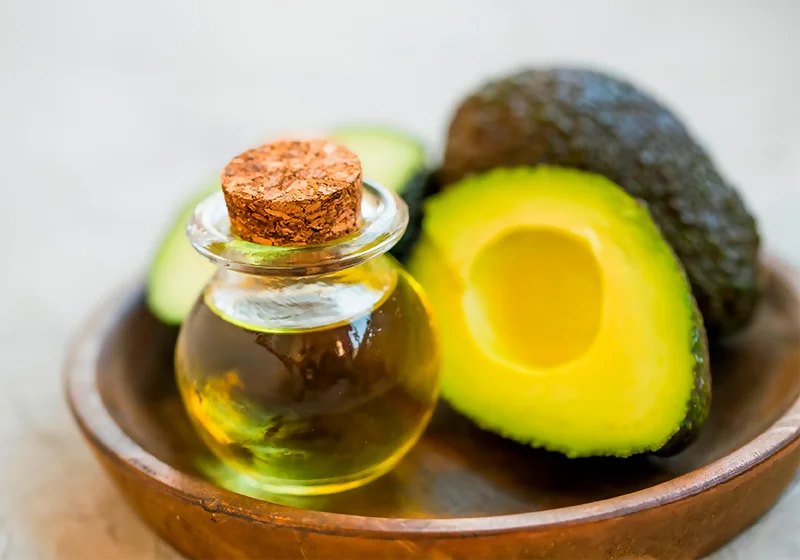Comparison of Oils: Avocado Oil vs. Other Cooking Oils
Choosing the right oil for cooking can make a significant difference in terms of flavor, health, and versatility. Among the many options available, avocado oil stands out for its nutritional benefits and ability to withstand high temperatures. In this blog post, we will compare avocado oil with other popular cooking oils to help you make an informed decision.

1. Avocado Oil
Nutritional Profile: Rich in monounsaturated fatty acids, vitamin E, and antioxidants.
Smoke Point: High, approximately 482°F (250°C).
Benefits: Improves cardiovascular health, promotes nutrient absorption, has anti-inflammatory properties, and is good for skin and hair.
Uses: Ideal for stir-frying, frying, salad dressings, baking, sauces, and marinades.
2. Olive Oil
Nutritional Profile: Rich in monounsaturated fats and antioxidants like polyphenols.
Smoke Point: Medium, around 374-428°F (190-220°C) for extra virgin olive oil.
Benefits: Enhances cardiovascular health, has anti-inflammatory and antioxidant properties.
Uses: Ideal for salad dressings, light sautéing, and drizzling over cooked foods./p>
3. Coconut Oil
Nutritional Profile: High in saturated fats, especially lauric acid.
Smoke Point: Medium-high, around 350°F (177°C).
Benefits: Improves hair and skin health, may have antimicrobial effects, metabolizes quickly for energy.
Uses: Ideal for baking, low- and medium-temperature cooking, and in pastry recipes.
4. Canola Oil
Nutritional Profile: Rich in monounsaturated fats and omega-3s.
Smoke Point: High, approximately 400°F (204°C).
Benefits: Supports cardiovascular health, low in saturated fats.
Uses: Ideal for baking, sautéing, and frying.
5. Sunflower Oil
Nutritional Profile: Rich in polyunsaturated fats and vitamin E.
Smoke Point: High, around 450°F (232°C).
Benefits: High in vitamin E, which acts as an antioxidant.
Uses: Ideal for frying and baking.
Comparison of Benefits and Uses
Conclusion
Each oil has its own benefits and best uses depending on your culinary and health needs. Avocado oil stands out for its high smoke point and balanced nutritional profile, making it an excellent choice for many culinary applications. However, oils like olive, coconut, canola, and sunflower also have their merits and can be used to complement a healthy diet.
Incorporating a variety of oils into your cooking can help you take advantage of the unique benefits of each, enhancing both the flavor of your meals and your overall well-being.




